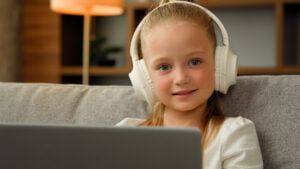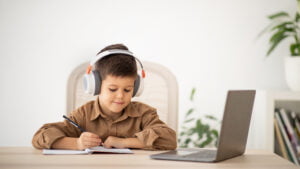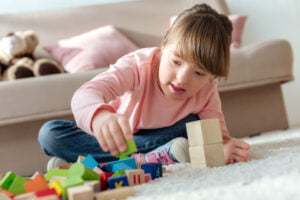10 Real Reasons Why Screen Time is Bad for Kids (and What To Do About It)

Screen time has become an increasingly prevalent part of children's lives, with many kids spending hours in front of screens each day. While screens can provide a variety of educational and entertainment opportunities, there are also several reasons why too much screen time can be harmful to kids.
Why is Screen Time Bad for Kids?
Here are the top reasons, backed by evidence, why screen time is bad for kids, and some suggestions for what parents can do to reduce these impacts.
Poor Sleep Quality

Screens can lead to poor sleep quality. The blue light emitted by screens can disrupt the production of melatonin, a hormone that helps regulate sleep. As a result, kids who spend too much time in front of screens may have difficulty falling asleep or may experience poor sleep quality.
Inactivity

Screens can contribute to inactivity and weight gain. Kids who spend a lot of time in front of screens may be less likely to engage in physical activity, which can lead to a lack of physical fitness and increased risk of obesity and other health problems. They may also be more likely to snack while watching screens, which can also contribute to weight gain.
Eye Strain

Screens can cause eyestrain and other physical problems. Kids who spend a lot of time in front of screens may experience eyestrain, dry eyes, and other physical problems
Brain Development

Screens can affect brain development. Research has shown that screens can have an impact on the way the brain develops in young children. Research studies have found that that children who spend more than one-two hours a day using electronic devices have lower scores on language and thinking tests than those who spent less time on screens.
Isolation

Screens can lead to social isolation. Kids who spend a lot of time in front of screens may be less likely to engage in face-to-face interactions with others, which can lead to feelings of social isolation.
Adult Content

Screens can provide children with access to inappropriate content, as well as exposure to adverts and other harmful material that is not age-appropriate. Smart devices, in particular, can enable children to easily access a wide range of content that may not have been specifically designed for them. It is important for parents to monitor and regulate their children's screen time to ensure that they are only exposed to appropriate content.
Emotional Development

Kids (and parents!) can also depend on screens when their little ones are upset or angry. While this can be a life saver in the short term, regular dependence on screens to distract from these feelings or behaviours can may develop an addiction, which can lead to problems with impulse control and decision-making.
Learning

There are lots of great tools online that can be helpful to learning at all age ranges, check out Khan Academy Kids, BBC Bitesize and Cbeebies. But, research suggests that kids who spend a lot of time in front of screens watching and not interacting may have difficulty paying attention and retaining information, which can interfere with learning. So it's important for development to balance passive screen-based tools with action and creativity-based activities.
Addictive Content

A lot of the content created online and on television is designed to be intentionally addictive. This means that kids, just like adults, experience an increase in dopamine in their brains when they watch it. This change in their brain chemistry drives them to want more and more. As a parent you can experience this in tantrums or protests when you try to turn the screens off.
Mental Health

Screens can affect mental health. Too much screen time in general has been linked to an increased risk of anxiety and depression in kids. Social media, in particular, can have a really negative impact on mental health, especially in older children and teens.
How to Manage Screen Time
So what can parents do to reduce the negative impact of screens on their children? Here are a few suggestions:
Set Boundaries

Set boundaries on screen time. It's important to establish boundaries around screen use and to ensure that kids are not spending excessive amounts of time in front of screens.
Encourage Activities

Encourage alternative activities. Make sure that kids have plenty of other activities to engage in, such as playing outdoors, reading, and participating in sports or other physical activities.
Be A Model

Model good screen habits. Kids are more likely to adopt healthy screen habits if they see their parents doing the same.
Use Screens Together

Provide educational and age-appropriate content. Make sure that kids are only exposed to content that is educational and age-appropriate.
Encourage Breaks

Encourage breaks from screens. Encourage kids to take breaks from screens and to engage in other activities, such as going outside or participating in physical activity.
In conclusion, while screens can be a useful tool, it's important for parents to be mindful of the potential negative effects of too much screen time on kids.
We hope you found this article useful. Did you know that the Poppet community is a great place to find more helpful tips and resources for your family as well as flexible childcare from local parents and approved providers, all at the touch of a button. Register here today!
Disclaimer: Please remember this article is for education purposes and does not constitute medical advice. You should seek advice from a trained medical professional if you have concerns about your child’s health.


